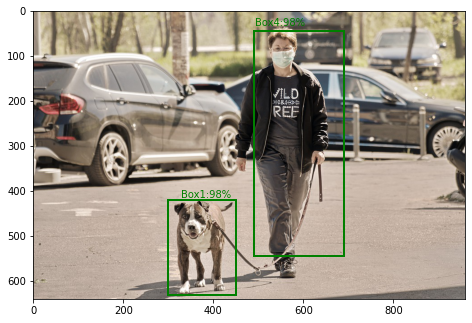The nextByte(radix) method of java.util.Scanner class scans the next token of the input as a Byte. If the translation is successful, the scanner advances past the input that matched. If the parameter radix is not passed, then it behaves similarly as nextByte(radix) where the radix is assumed to be the default radix.
Syntax:
public byte nextByte()
Parameters: The function accepts a parameter radix which is used to Byteerpret the token as a Byte value.
Return Value: This function returns the byte scanned from the input.
Exceptions: The function throws three exceptions as described below:
- InputMismatchException: if the next token does not matches the Byteeger regular expression, or is out of range
- NoSuchElementException: throws if input is exhausted
- IllegalStateException: throws if this scanner is closed
Below programs illustrate the above function:
Program 1:
// Java program to illustrate the// nextByte() method of Scanner class in Java// without parameter import java.util.*; public class GFG1 { public static void main(String[] argv) throws Exception { String s = "Gfg 9 + 6 = 12.0"; // create a new scanner // with the specified String Object Scanner scanner = new Scanner(s); while (scanner.hasNext()) { // if the next is a Byte, // prByte found and the Byte if (scanner.hasNextByte()) { System.out.println("Found Byte value :" + scanner.nextByte()); } // if no Byte is found, // prByte "Not Found:" and the token else { System.out.println("Not found Byte value :" + scanner.next()); } } scanner.close(); }} |
Not found Byte value :Gfg Found Byte value :9 Not found Byte value :+ Found Byte value :6 Not found Byte value := Not found Byte value :12.0
Program 2:
// Java program to illustrate the// nextByte() method of Scanner class in Java// with parameter import java.util.*; public class GFG1 { public static void main(String[] argv) throws Exception { String s = "Gfg 9 + 6 = 12.0"; // create a new scanner // with the specified String Object Scanner scanner = new Scanner(s); while (scanner.hasNext()) { // if the next is a Byte, // prByte found and the Byte if (scanner.hasNextByte()) { System.out.println("Found Byte value :" + scanner.nextByte(12)); } // if no Byte is found, // prByte "Not Found:" and the token else { System.out.println("Not found Byte value :" + scanner.next()); } } scanner.close(); }} |
Not found Byte value :Gfg Found Byte value :9 Not found Byte value :+ Found Byte value :6 Not found Byte value := Not found Byte value :12.0
Program 3: To demonstrate InputMismatchException
// Java program to illustrate the// nextByte() method of Scanner class in Java// InputMismatchException import java.util.*; public class GFG1 { public static void main(String[] argv) throws Exception { try { String s = "Gfg 9 + 6 = 12.0"; // create a new scanner // with the specified String Object Scanner scanner = new Scanner(s); while (scanner.hasNext()) { // if the next is a Byte, // prByte found and the Byte // since the value 60 is out of range // it throws an exception System.out.println("Next Byte value :" + scanner.nextByte()); } scanner.close(); } catch (Exception e) { System.out.println("Exception thrown: " + e); } }} |
Exception thrown: java.util.InputMismatchException
Program 4: To demonstrate NoSuchElementException
// Java program to illustrate the// nextByte() method of Scanner class in Java// NoSuchElementException import java.util.*; public class GFG1 { public static void main(String[] argv) throws Exception { try { String s = "Gfg"; // create a new scanner // with the specified String Object Scanner scanner = new Scanner(s); // Trying to get the next Byte value // more times than the scanner // Hence it will throw exception for (int i = 0; i < 5; i++) { // if the next is a Byte, // prByte found and the Byte if (scanner.hasNextByte()) { System.out.println("Found Byte value :" + scanner.nextByte()); } // if no Byte is found, // prByte "Not Found:" and the token else { System.out.println("Not found Byte value :" + scanner.next()); } } scanner.close(); } catch (Exception e) { System.out.println("Exception thrown: " + e); } }} |
Not found Byte value :Gfg Exception thrown: java.util.NoSuchElementException
Program 5: To demonstrate IllegalStateException
// Java program to illustrate the// nextByte() method of Scanner class in Java// IllegalStateException import java.util.*; public class GFG1 { public static void main(String[] argv) throws Exception { try { String s = "Gfg 9 + 6 = 12.0"; // create a new scanner // with the specified String Object Scanner scanner = new Scanner(s); // close the scanner scanner.close(); System.out.println("Scanner Closed"); System.out.println("Trying to get " + "next Byte value"); while (scanner.hasNext()) { // if the next is a Byte, // prByte found and the Byte if (scanner.hasNextByte()) { System.out.println("Found Byte value :" + scanner.nextByte()); } // if no Byte is found, // prByte "Not Found:" and the token else { System.out.println("Not found Byte value :" + scanner.next()); } } } catch (Exception e) { System.out.println("Exception thrown: " + e); } }} |
Scanner Closed Trying to get next Byte value Exception thrown: java.lang.IllegalStateException: Scanner closed
Reference: https://docs.oracle.com/javase/7/docs/api/java/util/Scanner.html#nextByte()

